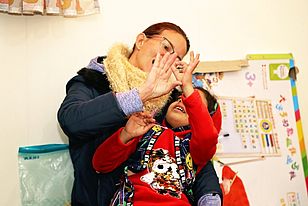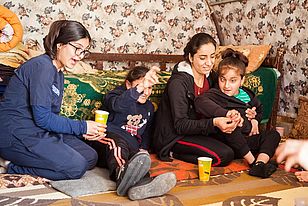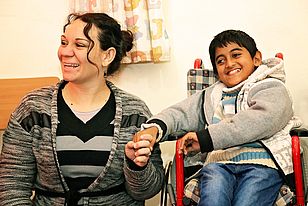Community-based rehabilitation in Jordan
Jordan
The project site is one and a half hours south of the capital Amman, a village area on the edge of the Jordanian desert, home to several Bedouin tribes. The Bedouins are a very traditional and communal society, strongly rooted in their Islamic faith. It is a highly segregated society where, on the whole, the outside world is dominated by men and life at home is taken care of by women. The government runs schools, clinics and other services in the region. However, the quality of these services is considered as insufficient and sometimes substandard. The project therefore addresses discrimination and a lack of opportunities for children with disabilities, i.e. to grow and to develop, to access education and jobs, and to be integrated into society.
Due to negative attitudes and a lack of resources, the needs of these children are often overlooked. However, Operation Mercy's work over the past few years has led to change on a small scale. Operation Mercy hopes and expects that these changes will have increasingly larger impacts and affect society as a whole.
The aim of the project is for rural communities to develop a more welcoming attitude towards disabled people within their community and become a more inclusive society. The work is performed with a local partner – the Al Ro'ya Association for People with Disabilities. On the family level, mothers and other caregivers are trained to carry out rehabilitation measures themselves, so that people with disabilities can gain greater mobility and independence. On the community level, capacity-building is taking place through raising awareness in schools and other public service areas to help them to fulfil their responsibilities towards children with disabilities. Community centres are also the focus of capacity-building measures, where children with disabilities can enjoy activities and time together with others. Local volunteers from Al Ro'ya are trained to run the activities with the children and advocate for them and their families.
The project has opened doors to home visits allowing spiritual, physical and emotional needs to be addressed.


